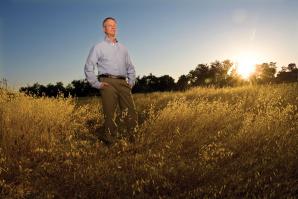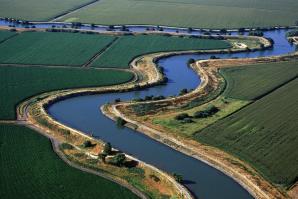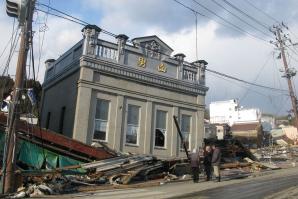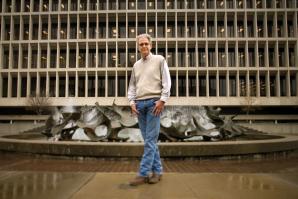
Paper Cut
Electronic permitting launches in Elk Grove
Builders trying to get plans approved by a city government all know the drill: Make the plans, and bring them to city hall. The city marks them up for revisions. Then you drive back to city hall, pick up the plans, send them off to consultants, make changes, print out hundreds of new pages and drive the new set of plans back to city hall or to another office or agency. Repeat. Repeat again. And maybe again.
Twist & Shout
Do voters know what's really killing California
In 1970, California’s Legislature was declared the model for America, and it was an honor well deserved.

Changing Tide
Turf and money battles continue over California water reform
It’s been about 20 months since lawmakers and former Gov. Arnold Schwarzenegger breathlessly announced a historic agreement called the Sacramento-San Joaquin Delta Reform Act of 2009, an ambitious plan to overhaul the state’s antiquated water system. Much has changed since then, but much more is still on the way.

Free Fallin’
A former treasurer reflects on the Great Recession
Former California State Treasurer Phil Angelides was tapped in 2009 to chair the Financial Crisis Inquiry Commission, a 10-member commission that Congress tasked with determining the causes of the Great Recession.

Temblor Trouble
Will recent quakes around the world spur policy change in California?
The scenes of twisted metal, splintered wood, crumbling brick and flooded streets are still vivid to Kit Miyamoto, a Sacramento-based engineer who follows earthquake destruction around the world. But he’s not just seeing these images in Haiti, Chile or Japan.

Party Planning
Setting the table for the capital cluster
State trade groups generate nearly $90 billion in annual spending nationwide through education and training programs, meeting products and services, and local, state and federal taxes, according to the California Society of Association Executives. Roughly 15 percent of that is spent right here in California, and much of it winds up in the till of the hospitality industry.

Computing Litigation
California law reaches toddler stage as lawyers struggle to keep up
The state law requiring the use of electronic documents as evidence in civil lawsuits, also known as e-discovery, turns two next month, and local attorneys say its application is still in the developmental stages.
The Budget Barrier
Pension reformed is needed for California to move forward
Despite months of negotiations between legislators and the governor, a reasonable state budget seems an almost unreachable goal.

Halls of Justice
Crumbling courthouses create construction opportunities
Since the founding of our state, courthouses have been the focal point of many communities. They are at once tangible symbols of the rule of law, monuments to our democratic ideals and the primary point of contact between the citizens and the judicial system. And, they are all but falling apart.

Been and Jerry
The new adventures of an old governor
We’ve had several months of the new administration of Gov. Jerry Brown. There are remarkable similarities — and a few notable differences — between the Gov. Brown of 2011 and the governor Californians first saw 36 years ago.


